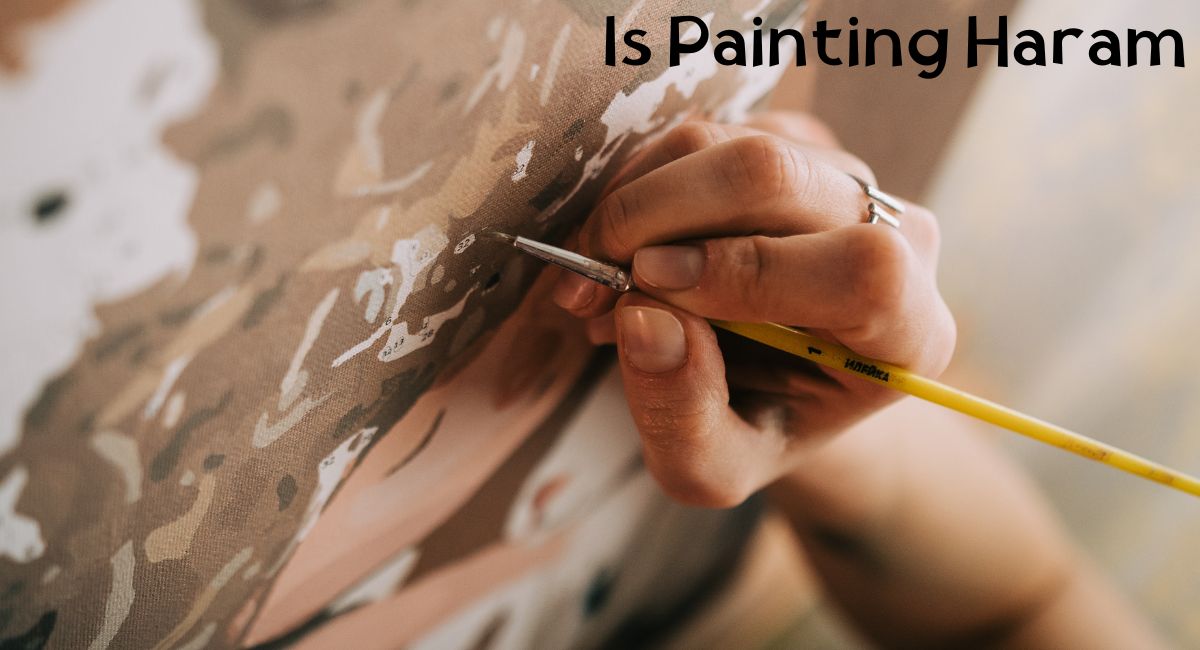New Year’s Eve, marked by joyous festivities, fireworks, and countdowns, is a globally recognized occasion that signifies the transition from one year to the next. However, like many cultural celebrations, the permissibility of celebrating New Year’s is a subject of debate within various religious and cultural communities.
In this article, we delve into the question of whether celebrating New Year’s is considered “haram” in Islam and examine the perspectives and arguments from both sides of the debate. While the answer may not be as straightforward as one might think, exploring the nuances of this issue can shed light on the broader discussions surrounding the compatibility of traditional religious values with contemporary cultural practices.
Is Celebrating New Years Haram
The question of whether celebrating the Gregorian New Year is permissible in Islam is a subject of debate among Islamic scholars. The primary concern revolves around whether such celebrations align with Islamic teachings and principles.
- Islamic Perspective on the Gregorian Calendar: The Gregorian calendar, which marks the New Year on January 1st, is not inherently part of Islamic tradition. Islam follows its own lunar calendar, with the Islamic New Year starting on the first day of Muharram. Therefore, some argue that acknowledging the Gregorian New Year is irrelevant from an Islamic standpoint.
- Scholarly Opinions and Teachings: A significant number of Islamic scholars and preachers regard celebrating the Gregorian New Year as an imitation of Jewish and Christian traditions, which is generally discouraged in Islam. This view is supported by a hadith of the Prophet Muhammad (peace be upon him), which states, “Whoever imitates a people is one of them”.
- Celebrating for Social Harmony: Some scholars offer a nuanced view, suggesting that participating in New Year celebrations for the sake of social harmony, especially in non-Muslim societies, is permissible as long as Muslims refrain from engaging in activities forbidden in Islam, such as consuming alcohol or drugs.
- Interaction with Non-Muslim Family Members: In the context of family, scholars acknowledge the importance of maintaining good relations with non-Muslim family members. Participating in New Year celebrations with family is seen as acceptable, provided Muslims maintain their religious integrity and avoid sinful activities.
- Concerns about Sinful Activities: A common concern among scholars is the potential involvement in sinful activities during New Year celebrations, such as alcohol consumption and mixed gatherings. These concerns lead many to advise against participation in such events.
- Specific Scholarly Views: Notable scholars like Sheikh Muhammad Salih al Munajjid and Shaykh Muhammed Saalij Al Munajjid assert that indulging in New Year celebrations is not permissible, as it involves imitating non-Muslim practices and can imply acceptance of non-Islamic rituals.
- Diversity of Opinions: Despite these concerns, there is a diversity of opinions within the Islamic scholarly community. Some scholars believe that as long as Muslims stay within their Islamic boundaries, wishing others a happy New Year or acknowledging the occasion is acceptable.
- Celebrating Islamic New Year: It’s noteworthy that Islam encourages the celebration of its own New Year at the beginning of Muharram, with a focus on prayer and seeking blessings from Allah. This contrasts with the often secular and sometimes sinful nature of Gregorian New Year celebrations, which are seen as not aligning with Islamic values.
In conclusion, while there is a spectrum of views among Islamic scholars regarding the celebration of the Gregorian New Year, the predominant opinion leans towards non-participation due to concerns about imitating non-Muslim customs and engaging in activities contrary to Islamic teachings.
However, maintaining social harmony and family ties, especially in multicultural environments, is also a consideration, provided it does not lead to compromising Islamic principles. As always in matters of faith, personal interpretation and context play significant roles, and the ultimate guidance comes from the teachings of the Quran and the Sunnah.
Is It Haram to Say Happy New Year
Whether or not it is haram to say “Happy New Year” is a complex question that has been debated by scholars for centuries. There is no clear consensus on the issue, and different schools of thought have different interpretations of the Quran and Hadith.
Some scholars believe that it is haram to say “Happy New Year” because it is a form of celebrating a non-Islamic holiday. They argue that the Gregorian calendar is a Christian invention, and that celebrating the New Year is a way of showing allegiance to Christianity. Others argue that it is not haram to say “Happy New Year” because it is simply a way of expressing good wishes to someone. They point out that the Quran and Hadith do not explicitly forbid congratulating someone on a new year, and that it is permissible to do so as long as it is not done in a way that promotes non-Islamic beliefs or practices.
Ultimately, the decision of whether or not to say “Happy New Year” is a personal one. Muslims should weigh the different opinions on the issue and make a decision based on their own understanding of Islam.
Here are some additional factors to consider when making a decision:
- The context in which the greeting is being given. If a Muslim is greeting a non-Muslim, it is generally considered permissible to say “Happy New Year” as a way of being polite and respectful. However, if a Muslim is greeting another Muslim, it is important to be more cautious about using this greeting.
- The intentions of the person giving the greeting. If the person is simply trying to be friendly and wish the recipient well, then there is no harm in saying “Happy New Year.” However, if the person is trying to promote non-Islamic beliefs or practices, then it is best to avoid using this greeting.
- The beliefs of the person receiving the greeting. If the recipient is a non-Muslim, they may not understand the significance of the greeting and may simply take it as a polite gesture. However, if the recipient is a Muslim, they may be offended by the greeting if they believe that it is haram.
In general, it is always best to err on the side of caution and avoid saying “Happy New Year” to other Muslims unless you are sure that they are comfortable with it. There are many other ways to express good wishes to someone, such as saying “May Allah bless you with a good year” or “May you have a year of peace and prosperity.”
Is It Haram to Watch Fireworks on New Year
The permissibility of watching fireworks on New Year’s Eve is a matter of debate among Islamic scholars. There is no explicit prohibition in the Quran or Sunnah against watching fireworks, and some scholars argue that it is permissible as long as it does not lead to any haram activities, such as mixing with non-mahram individuals or consuming alcohol.
However, other scholars argue that watching fireworks on New Year’s Eve is haram because it is a celebration of a non-Islamic holiday. They argue that Muslims should not participate in the celebrations of other religions, as this can lead to shirk (associating partners with Allah).
Ultimately, the decision of whether or not to watch fireworks on New Year’s Eve is a personal one that should be made on a case-by-case basis. Muslims should carefully consider their intentions and the potential consequences of their actions before making a decision.
Here are some additional factors to consider:
- The context of the event: If the fireworks are being held in conjunction with other haram activities, such as alcohol consumption or music concerts, then it is clearly haram to attend.
- The intention of the individual: If the individual is attending the event in order to celebrate New Year’s Eve, then it is haram. However, if the individual is attending the event out of curiosity or for enjoyment, then it may be permissible.
- The potential impact on the individual’s faith: If the individual is concerned that attending the event could weaken their faith, then it is best to avoid it.
If you are unsure about whether or not it is permissible to watch fireworks on New Year’s Eve, it is always best to err on the side of caution and avoid it. There are many other ways to celebrate the new year that are permissible in Islam.
Is Making New Year Resolutions Haram
The Islamic stance on making New Year’s resolutions is not straightforward, as it depends on how one approaches the concept and the overall context.
- The Gregorian Calendar and Religious Significance: The Gregorian calendar, which marks the transition from one year to another, is not rooted in Islamic traditions. It originates from the Roman Empire and has been adopted by various cultures worldwide. While the calendar itself is not inherently Islamic, the significance attached to the Gregorian New Year’s transition can be problematic for Muslims.
- The Potential for Idolatry and Shirk: Some Islamic scholars caution against New Year’s resolutions due to the potential for them to be associated with non-Islamic beliefs or practices. Celebrating the Gregorian New Year’s transition can be seen as a form of imitating non-Muslim cultures, which could lead to idolatry (shirk) if one views it as a divinely ordained event.
- The Importance of Personal Growth and Commitment: On the other hand, some Islamic scholars believe that making New Year’s resolutions can be a positive practice if approached with the right intentions and goals. Setting personal goals for self-improvement and spiritual growth aligns with Islamic teachings of self-discipline and striving to be better Muslims.
- The Role of Intention and Adherence to Islamic Principles: Ultimately, the permissibility of New Year’s resolutions lies in the intention behind them and the overall adherence to Islamic principles. If one makes resolutions to improve their worship, character, and relationship with God, it can be seen as a reflection of personal piety and commitment to Islam.
- Striving for Continuous Improvement: Instead of focusing solely on New Year’s resolutions, Muslims are encouraged to adopt a continuous approach to personal growth and self-improvement. The Islamic concept of “mujahadah” emphasizes striving to overcome one’s shortcomings and striving to be closer to God.
- Seeking Guidance from Scholars: For a more definitive opinion on New Year’s resolutions, it is advisable to consult with knowledgeable Islamic scholars or imams. They can provide personalized guidance based on the individual’s circumstances and understanding of Islamic teachings.
In summary, making New Year’s resolutions is not inherently haram in Islam, but it is crucial to approach them with due consideration for the potential for cultural or religious syncretism. The focus should be on personal growth and improvement in line with Islamic principles, rather than merely imitating non-Islamic practices.
If you’re curious about the permissibility of various celebrations in Islam, explore these articles to gain a better understanding of the religious perspectives surrounding these occasions.
Is Celebrating Birthdays Haram: Discover the Islamic perspective on celebrating birthdays and whether it is considered haram (forbidden) in this thought-provoking article. Gain insights into the cultural and religious aspects surrounding this common practice.
Is Celebrating Christmas Haram: Dive into a discussion on the permissibility of celebrating Christmas in Islam. This article examines the religious and cultural implications of participating in Christmas festivities and offers insight into this often-debated topic.






